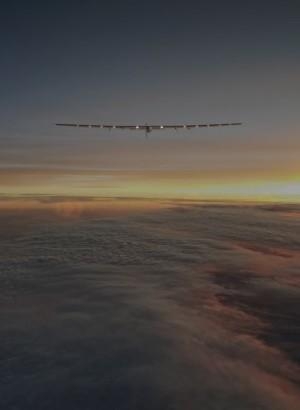Fri, Nov 22, 2019
Skydweller Aero Is Developing The World's First Solar-Powered Drone Capable Of Perpetual Flight With Heavy Payloads
Leonardo is accelerating the progress of technology and innovation in autonomous flight by investing in Skydweller Aero Inc., a U.S./Spanish start-up specializing in large-scale solar-powered unmanned air systems. The initiative will result in the development and deployment of the Skydweller drone, the world’s first fully electric unmanned aircraft capable of carrying large payloads with unlimited range and ultra-persistent endurance.

"As the key technological investor and partner of the project, Leonardo will broaden its capabilities in new power systems, autonomous flight, innovative aerostructures, ultra-light materials and eco-friendly technologies to improve the company's competitive advantage in the aerospace business for the next 20 years," said Alessandro Profumo, CEO of Leonardo.
Thanks to its unique features, Skydweller combines potentially unlimited persistence and range with the flexibility of an aircraft. It will operate from existing airbases around the world, deploy thousands of miles away to areas of high need, and remain overhead for orders of magnitude longer than current aircraft. This revolutionary platform will be used for purposes ranging from land and maritime surveillance to monitoring the environment and infrastructure, from industrial geo-information services to telecommunications and precision navigation. During emergencies and disaster-recovery situations, the system can be rapidly deployed from distant locations to provide backup communications and direct support to first responders.
The Skydweller project builds on a proven and mature aircraft that successfully circumnavigated the globe in 2016. The first phase focuses on converting the aircraft from a manned platform into an Optionally-Piloted Vehicle (OPV) by integrating advanced autonomy algorithms and vehicle management systems. The second step of the project will culminate in the first production aircraft, designed solely for unmanned operations and hardened against a range of environmental conditions. Autonomous flights of the OPV are projected for 2020 and the first production model of the unmanned version of the aircraft is expected in 2021.
The system will comply with European export laws and will not be subject to International Traffic in Arms Regulations (ITAR) restrictions. This will enable the aircraft to satisfy government and commercial needs around the world. Leonardo will act as the prime contractor for commercial opportunities in Italy, the United Kingdom, Poland and NATO.
Development and construction of the aircraft will be carried out at the Skydweller facility in the Castilla-La Mancha region of Spain. Leonardo Aircraft division will participate in development and engineering activities via a dedicated team.
(Image provided with Leonardo news release)
More News
From 2023 (YouTube Edition): "Ain’t Your Daddy’s Super Cub”—Don Wade Co-owned by Don and Ron Wade—the former of Don’s Dream Machines, a storied >[...]
Pilot-Rated Passenger Reported That The Pilot Did Not Adequately “Round Out” The Landing Flare And The Airplane Bounced And Yawed To The Right Analysis: The pilot state>[...]
Dead Reckoning Dead reckoning, as applied to flying, is the navigation of an airplane solely by means of computations based on airspeed, course, heading, wind direction, and speed,>[...]
Aero Linx: Lake Amphibian Club This website is created and sponsored by the Lake Amphibian Club, to help spread the word about these wonderful, versatile amphibians that can land j>[...]
“I am deeply honored to be sworn in as NASA administrator. NASA’s mission is as imperative and urgent as ever — to push the boundaries of human exploration, ignit>[...]
 Classic Aero-TV: In Praise of Alabamas Patriot Aircraft USA
Classic Aero-TV: In Praise of Alabamas Patriot Aircraft USA NTSB Final Report: Cirrus Design Corp SR22
NTSB Final Report: Cirrus Design Corp SR22 ANN's Daily Aero-Term (12.21.25): Dead Reckoning
ANN's Daily Aero-Term (12.21.25): Dead Reckoning ANN's Daily Aero-Linx (12.21.25)
ANN's Daily Aero-Linx (12.21.25) Aero-News: Quote of the Day (12.21.25)
Aero-News: Quote of the Day (12.21.25)



